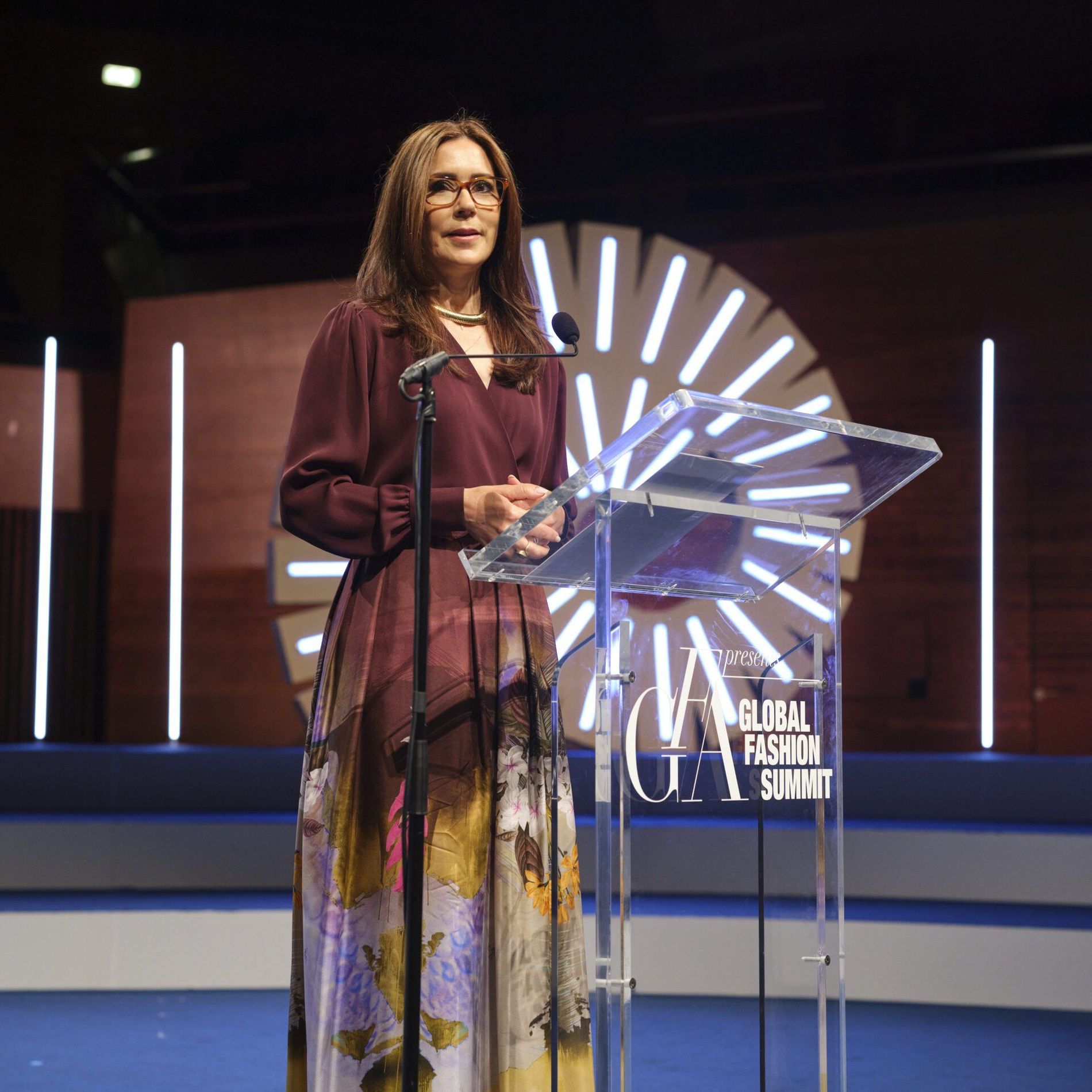The 2024 edition faced industry matters head-on, with both reflection and urgency. Here, Vogue Scandinavia rounds up five key takeaways from Copenhagen's Global Fashion Summit
Celebrating 15 years since the inaugural activation that first gathered fashion leaders, innovators and speakers to Copenhagen, The Global Fashion Summit held a reflective tone for the 2024 edition – at times pessimistic, at others energised, but overall urgent. Introduced in 2009 to coincide with the UN Climate Change Conference Cop15 that was held in Copenhagen, yet had crucially left fashion off their agenda, the Global Fashion Summit was founded by Eva Kruse as an international forum for sustainability in fashion presented by the Global Fashion Agenda, in order to take global leadership on creating a movement within fashion towards positive change and responsible innovation.
For the 2024 edition, while the size of the event has certainly grown, the topic at hand was whether the impact and results had followed suit.
On what she saw are the most pressing issues affecting the fashion industry today, CEO of The Global Fashion Agenda Federica Marchionni noted: "The most pressing issues affecting the fashion industry today include the accelerated rate of global warming intertwined with the growing environmental impact of clothing production. These issues are closely linked to the wider global climate crisis, as over 70% of the industry's emissions stem from energy-intensive raw material production and processing. The remaining 30% are generated by downstream activities such as transport, packaging, and retail operations.
Equally important are the continuing issues for those working within the industry. The industry wage gap across key producing countries has increased to 48.5 per cent, with many workers receiving less than half of the money they need to reach a living wage. So, the industry must work to enhance diversity, equity and inclusion and build stronger systems for worker protection and representation. Addressing these challenges requires systemic change, prioritising sustainable practices, and embedding sustainability into the core of business operations to ensure resilience and reduce our environmental footprint."
Related: After 15 years of the Global Fashion Summit in Copenhagen, what has actually been achieved?
With this year's theme of ‘unlocking the next level’, the core principles of the 15th edition were as much about looking back as striving forward (at an urgently faster pace). Simultaneously acknowledging that not enough had been done, but that we cannot lose sight of our goals, The Global Fashion Summit highlighted its key focuses as operationalising sustainability, redefining growth, activating consumers, prioritising people and material mobilisation.
With key takeaways circulating on new models, the need for authentic definitions of collaboration, the role of the citizen and the importance of investing in innovation, the 2024 edition brought back familiar speakers and inviting to the stage new perspectives: the next frontier will be taking these learnings and translating into agenda setting action.
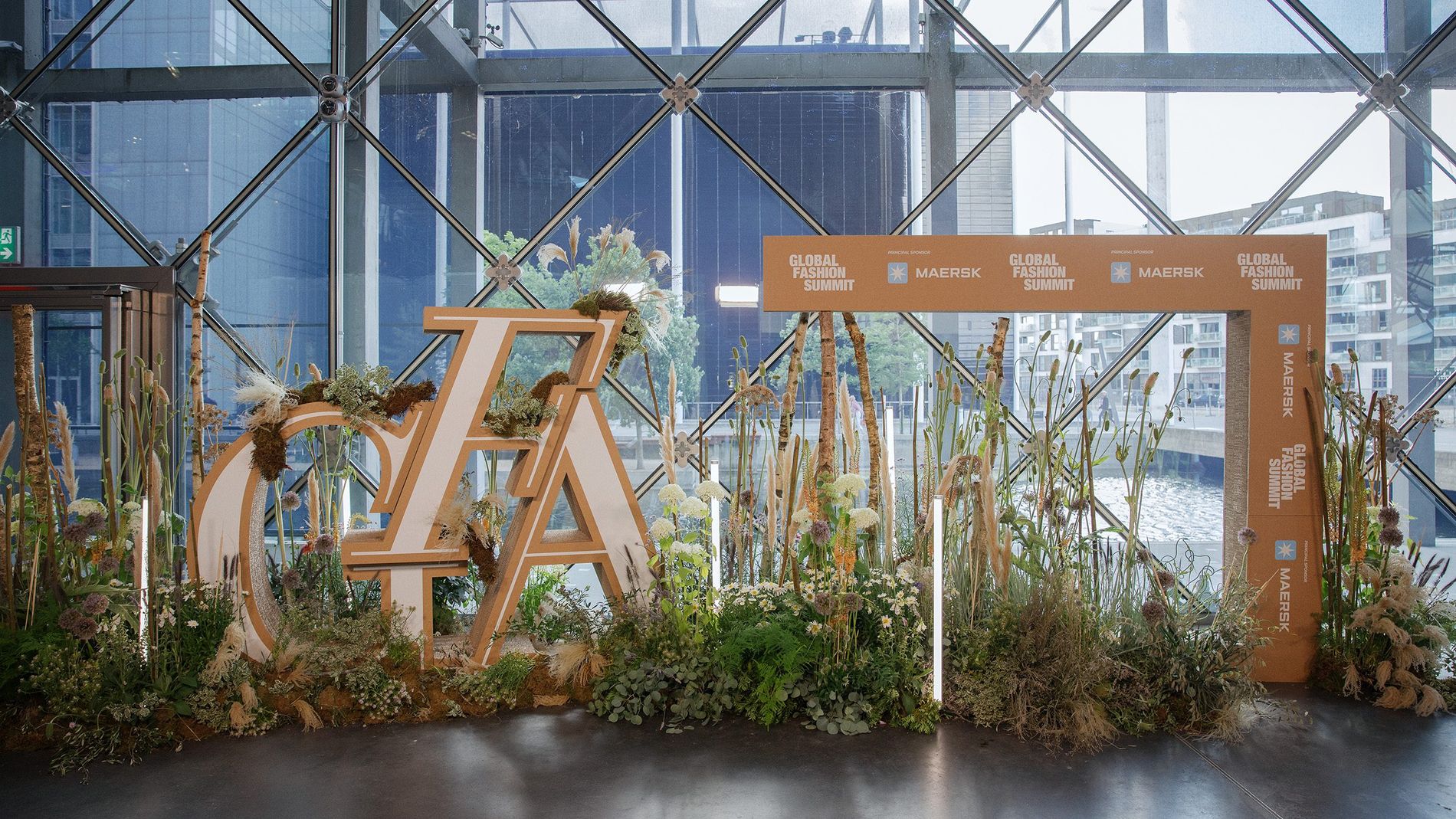
Carrying responsibility
In her opening speech, Federica Marchionni emphasised that slowing down investment now was not the answer, and called for leaders across the whole value chain to do their part to unlock the next level. This statement resonated with the keynote panel discussion that gathered Vanessa Friedman from the New York Times, Julie Gilhart, fashion consultant and previously SVP of Barneys, Eva Kruse, founder of Global Fashion Agenda and The Global Fashion Summit, and Peder Michael Jorgensen from the Global Fashion Agenda’s Board of Directors to reflect on their original panel talk at the first summit in 2009: what was discussed then and what had changed now. Vanessa flagged her original concern from 15 years prior which was the need for a common lexicon in fashion if there was going to be a collective and concerted effort towards responsible and actually impactful change.
Numbering off various acronyms of legislation currently in motion, she asked the audience if anyone knew what KISS stood for- when the audience failed to gauge which legislative push she was referencing she reminded us that it stood for Keep It Simple Stupid. A dig, but one meant to be received as a comedic comment on the obstacles we build for ourselves if we don’t look to communicate clearly and collaboratively with one another about what the common goals are for all to push forward towards together.
Vanessa further reiterated her point by summarizing the problem as “we make too much stuff.” Probably the clearest message over the two day symposium, noting that scientists foresee that there will be 148 million tonnes of textile waste in landfill by 2030: there is no unlocking of any level unless this overconsumption is addressed.
For Eva, looking back on what she was thinking in 2009 to what she thinks now, she noted back then she was a “stubborn optimist. I still am, but I didn’t know how slow it would go. I thought we wouldn’t need to meet 15 years later. While we have moved from a peripheral concern to core I am still disappointed about all of us, myself included.”
Flagging that only 15% of the sustainable development goals are on track for 2030, the overarching note that resonated across many speakers throughout the two days, was the fact that if people and brands weren’t uncomfortable they weren’t doing enough.
With author and business leader Paul Polman’s keynote presentation Lead or Be Led, he reiterated that our take-make-waste model was running out of steam, with the bar not only to be set much higher, the goal needed to be towards net positive, not just a mindset of being ‘less bad’. His hope for the summit was at this pivotal moment the fashion industry decided to be part of the solution, not part of the problem: a metamorphosis of the industry is required.
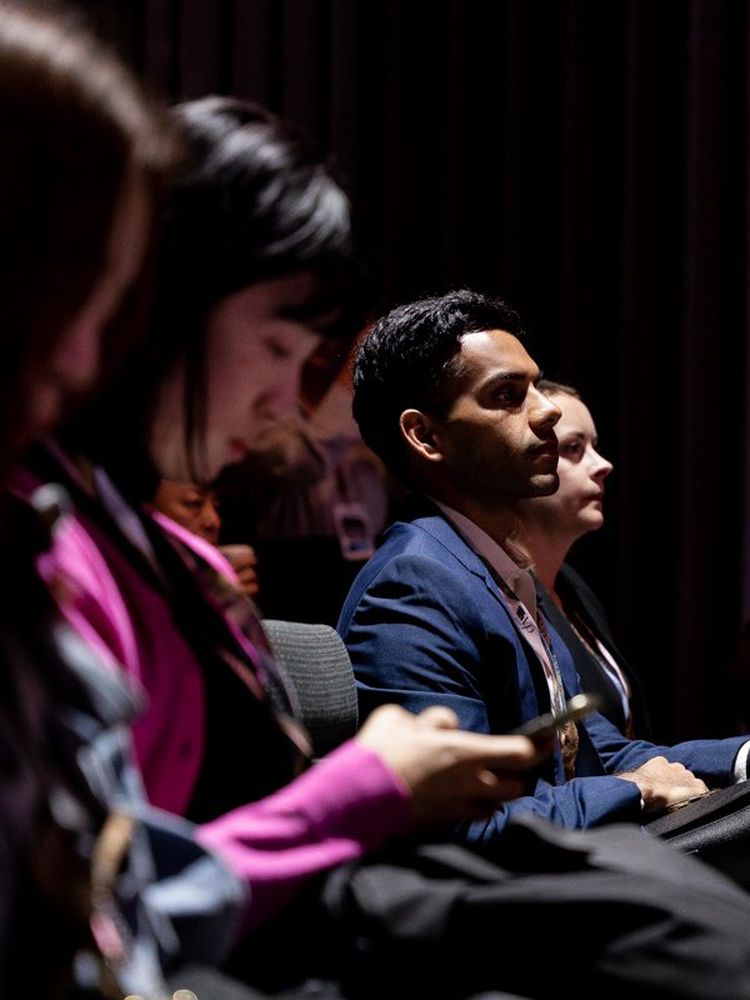
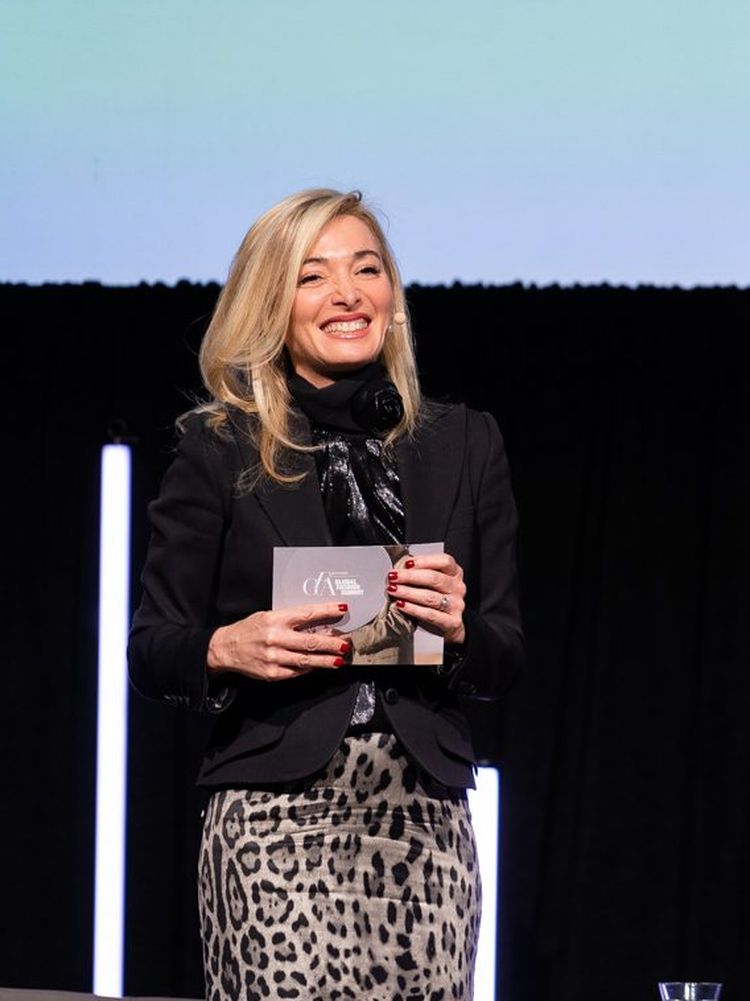
Collaboration and how to do it right
While the word 'collaboration' has been used loosely in order to signal cooperation, compromise and positive cross-pollination, the trials and tribulations collaboration can also encounter was a valid message in order to continue moving forward and at a speed the industry’s critical agenda requires. Peder Michael Jorgensen, Global Fashion Agenda’s Board of Directors, even went so far as to comment that “collaboration has been quite defensive and isn’t transforming how we run our businesses.”
One talk that addressed this touched on designing with intent, discussing the work Ralph Lauren was creating with the designer and Ralph Lauren’s artist in residence Naiomi Glasses. With the underlining importance of celebrating, collaborating and compensating the culture and communities that inspire the fashion industry, the panel looked at what authentic collaboration should look like and shifting the model of inspiration to authentic collaboration and onwards to a partnership of intent. Discussing how she carried a responsibility to how her culture will be presented on a global scale, Naiomi concluded that the purpose she aimed for was “fully collaborating for the next level. Telling these stories allows people to see indigenous cultures and how they show up in this world today.”
For Paul Polman the state of the industry was still at a stage of needing to shift away from the terrifying erosion of trust in the industry, and that businesses should not be competing but cooperating - if it continued to create problems at a faster pace than solutions. What cooperation could look like what not necessarily business-to-business, but more letting science into the conversation: setting targets that science demands and encouraging positive advocacy. Of his further note on collaboration, the critical discourse of finding ways to get more money up the value chain resonated as a problem continuously brought forth on agendas, but that still remains.
The need to decouple revenue from production
For the Ellen MacArthur Foundation, who unveiled their new initiative The Fashion ReModel at this year’s summit, their focus was to debunk the belief that revenue and production are intrinsically tied together. Announcing Arc'teryx, ARKET, COS, H&M Group, Primark, Reformation, WEEKDAY, and Zalando as the first participants in the Foundation-led demonstration project, the initiative will identify solutions and overcome challenges to begin to decouple revenue from the production of new garments, advancing the long-term journey to make a circular economy.
Looking at rental, repair, remake and resale as four business models to be implemented across businesses in order to evolve from the linear business model into a circular system, the goal of the Ellen MacArthur foundation with The Fashion ReModel is to normalise these new approaches, utilising case studies of major businesses to prove the potential these solutions can unlock. With resale to account for 20% of the market share in the near future, the potential for brands to make money without making new clothes is almost untapped by most businesses. Vanessa Friedman pointed out the shift into cultivating clubs, communities and experiences for some brands, others flagged over the two days the lack of input from luxury fashion leaders into the repair model: preaching about quality, craftsmanship and durability but critically abandoning the impact building effective repair streams for consumers could only further strengthen loyalty and underline messaging of true luxury principles.
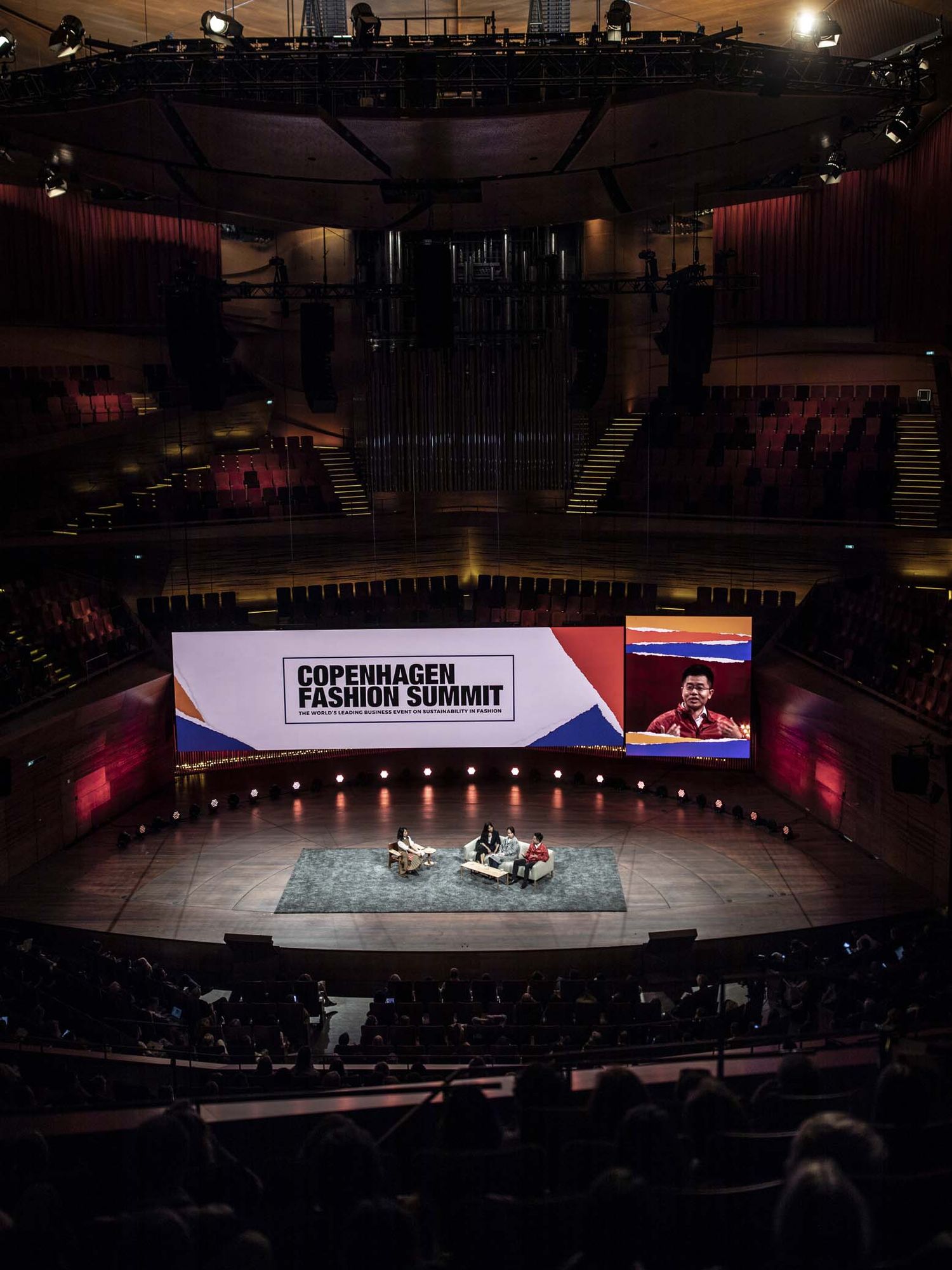
The next gen of creative thinking is not just in design
While the growth of designer-first incubator programs continues to grow on a global scale, for the Global Fashion Agenda, the spotlight is on those that are supporting the transformation of the fashion and textile industry. Helping early stage scale up in innovators, the award plays an important tenet, with Christina Iskov, Head of Innovation & Development at the Global Fashion Agenda noting: “The purpose of the Trailblazer Programme is to identify and support early-stage innovations that address critical challenges within the fashion industry. By facilitating investment and providing strategic mentorship, we aim to accelerate the development of scalable solutions that can drive meaningful change across the entire value chain. This year's winner, Bloom Labs, represents a significant breakthrough for the industry. Their pioneering work in developing next-generation alternatives to natural and synthetic fibres from globally abundant waste streams is a game-changer. Bloom Labs' closed-loop process not only reduces reliance on virgin resources but also enhances the efficiency of industrial fiber processing, merging sustainability with practicality. We believe that fostering such critical thinkers and innovators along all areas of the supply chain is essential to redefining growth in the fashion industry. By celebrating and supporting Bloom Labs, in partnership with PDS Ventures, we are underscoring the importance of holistic solutions that can contribute to a sustainable and prosperous fashion system.”
For the 2024 edition, Bloom Labs secured the award for its pioneering material science breakthrough, which converts natural waste by-products into high-performance textile alternatives through advanced bio-manufacturing techniques. With the capability to take up to 15 billion pounds of annually produced fibrous protein waste and convert them into fibres that hold the durability of polyester but the natural capabilities of wool and silk. By transforming waste to produce a circular system, Bloom Labs takes waste streams and cultivates value from them.
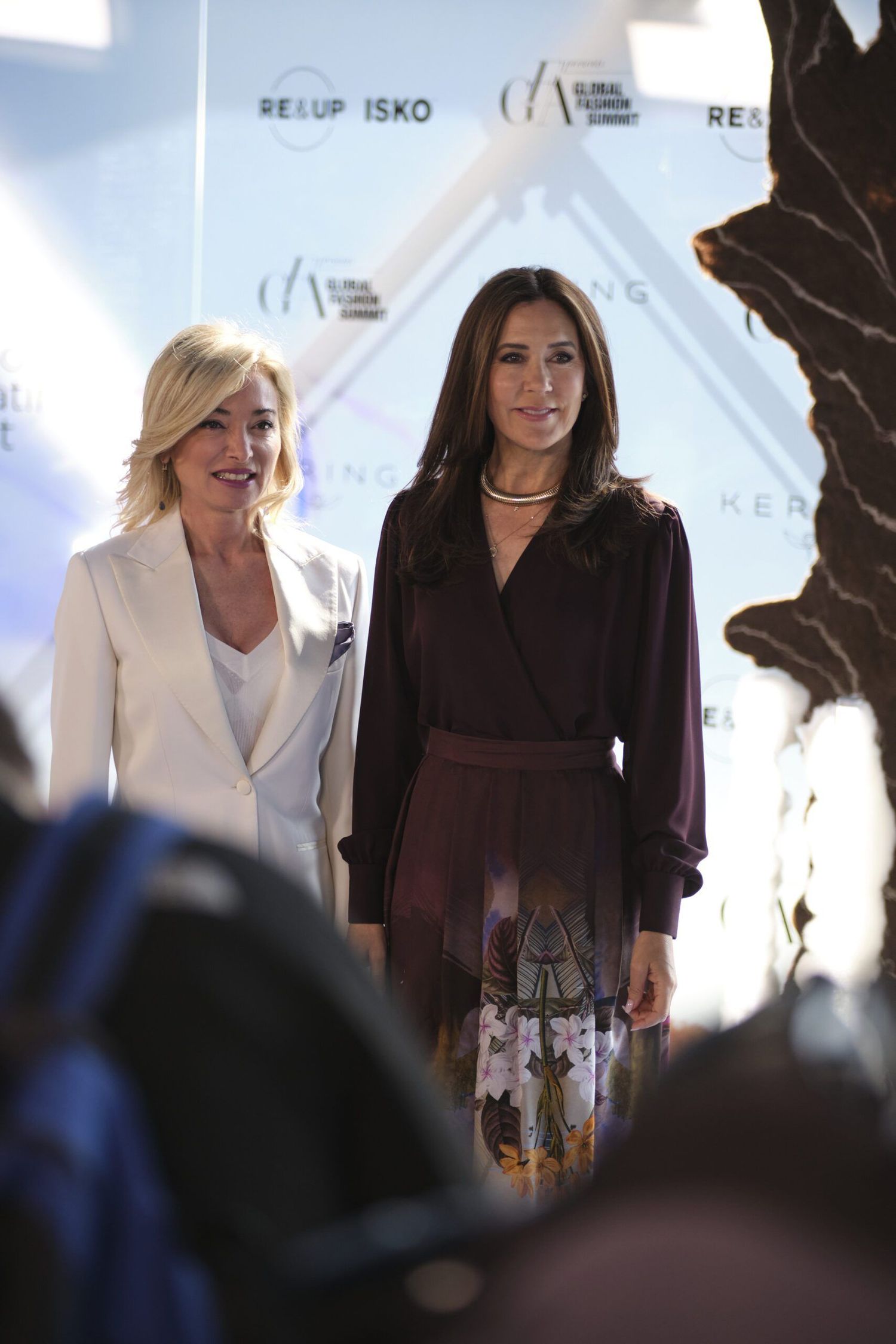
Citizens before consumers
For the closing speech, the CEO of Patagonia Ryan Gellert opened with the brand’s new video The Shitthropocene. Dubbed a journey from the cellular-level origins of our lack of impulse control to the ways our central nervous systems have been hacked in the name of capitalism, the video also explores how we might begin to save ourselves from ourselves. With the inherent message that humans are coded to consume, it discussed how this has evolved from initially a reactive to survive but how we now live in a world where that coding is being abused by brands, businesses and organisations to convince society to continue buying more things. With the reminder of citizen first consumer second a core, continued message echoed throughout the two days of the Global Fashion Summit, Gellert’s discussion of the decisions made by Patagonia’s founder Yvon Chouinard - culminating in Chouinard’s transferral in 2022 of the ownership of Patagonia to a specially designed trust and nonprofit organization to ensure all profits (in recent years 100 million USD annually) are used to combat climate change and protect undeveloped land around the globe - only underlined the organization’s commitment to doing business differently and Chouinard’s lifelong love for the environment. Mentioning Chouinard’s bumper sticker on his Subaru car as stating “every billionaire is a policy failure”, Gellert reiterated Patagonia’s leadership in not only business but also in agenda setting for new prospects of what can define success and actual impact for businesses in fashion today.
On questioned about how to unlock the next level, Gellert reflected: “Hope is a passive idea: I care about energy...The window of pessimism is behind us and the time is now - we don’t have the will and that has got to change.” Patagonia dared its audience to care, and looked to ground their own positioning as citizens first and consumers second.
Closing remarks
It was Paul Polman’s innate ability for powerful speechmaking that left a resounding impact on many, with his call to action of “lead or be led”. With the greatest purpose of the Global Fashion Agenda its own desire to eradicate its necessity to exist, right now the industry very much relies on its forum continue to urge for change in the fashion industry. The lasting note upon the closure of 2024’s Summit was that the time is upon us: extraordinary action is needed.
